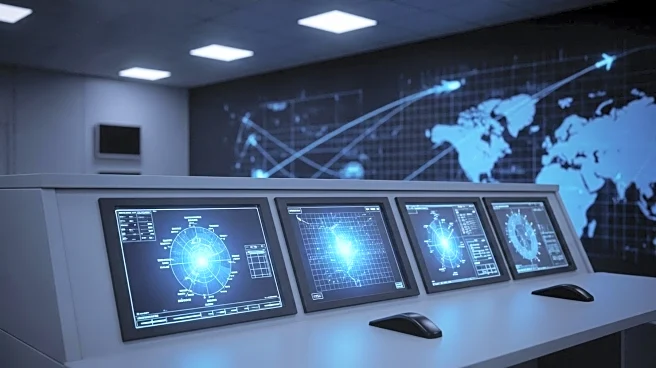What's Happening?
Italy is contemplating measures to conceal state flight paths following an incident where the plane carrying European Commission President Ursula von der Leyen experienced GPS jamming, allegedly by Russia. The incident occurred as von der Leyen was traveling to Bulgaria, causing her plane to lose satellite navigation aids and delay its arrival. This event has prompted EU member states to discuss enhancing the security of leaders' flights amid increasing electronic interference since Russia's invasion of Ukraine in 2022. Italy's defense minister, Guido Crosetto, has proposed classifying state flights and limiting public access to flight information to prevent tracking. This proposal comes as electronic interference becomes more common near Russian airspace.
Why It's Important?
The potential concealment of state flight paths by Italy highlights the growing concern over electronic warfare tactics like GPS jamming and spoofing, which have escalated since the conflict in Ukraine. Such measures could impact transparency and accountability in government operations, as well as international diplomatic protocols. The move reflects broader security challenges faced by European nations in safeguarding their leaders and critical infrastructure from foreign interference. If implemented, this could set a precedent for other countries facing similar threats, potentially altering how state flights are managed and monitored globally.
What's Next?
Italy may proceed with plans to shield state flights from public tracking, which could involve changes to existing protocols and international agreements. This decision could prompt reactions from other EU member states and international bodies concerned with aviation safety and transparency. Additionally, further incidents of GPS jamming could lead to increased collaboration among European nations to develop countermeasures and enhance security for state and commercial flights.
Beyond the Headlines
The ethical implications of concealing state flight paths include potential conflicts with public right-to-know principles and the balance between national security and transparency. The move could also influence how other countries perceive and respond to electronic warfare threats, potentially leading to a shift in international aviation policies and practices.











